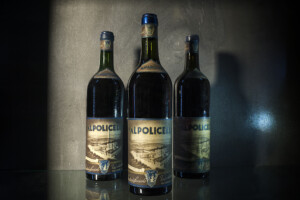
If the debate about “no-low” wines focuses very often almost exclusively on the typology of zero alcohol, according to many, it has great space of growth, but with an average quality of products still far from being satisfying, low alcohol wines, of which one talks less, are those which, maybe, give better qualitative and “saleable” results. And, this is the path undertaken also by one of the leaders of Italian wine, i.e. Prosecco Doc, which recently presented the results of project “Prosecco Low-Alcohol”, started in 2024 by Consorzio della Doc Prosecco in collaboration with the University of Padua to investigate the characterizing elements of a sparkling wine production which has an effective alcoholic content between 8 and 9 grades, and a low residual sugar. However, with a result obtained not through dealcoholization, but with an ad hoc management both in vineyard and vinification to limit the development of alcoholic content, which WineNews could taste, and which, from an olfactory and visual point of view, is very close, if not all, to “traditional” Prosecco because, also from a tasting point of view, presents the characteristics of freshness, and drinkability typical of Prosecco Doc, without the excesses of acidity and residual sugar which are found in many recently tasted “no alcohol” wines.
“Up to today - comments the president of Consorzio Giancarlo Guidolin - in our disciplinary guideline, low alcohol sparkling wines (about 8,5% vol.) are admitted, but compulsory, with high residual sugar (Demi-Sec version). Therefore, the aim of the experimentation is to evaluate a Glera-based sparkling wine with an alcoholic content of 8-9% vol. and a residual sugar in line with market preferences, i.e. Brut and Extra Dry”.
“The first results obtained in the headquarters of experimentation were positive, in line with expectations declares Simone Vincenzi, professor at the Department of Agronomy at the University of Padua - it is important to underline that it is not a process of dealcoholization, but of a different management of fermentations both in phase of vinification and sparkling wine making”.
“The Consortium - concludes Guidolin – has always been attentive to market evolution, and new consumption trends. With this experimentation, we want to carefully evaluate, before during the council board, and then, during the Assembly, the opportunity to reply to the requests of new generations, and to an increasingly more attentive public towards nutritional themes, and aware wine consumption, without go missing identity, and the peculiarities of our denomination”.
Copyright © 2000/2026
Contatti: info@winenews.it
Seguici anche su Twitter: @WineNewsIt
Seguici anche su Facebook: @winenewsit
Questo articolo è tratto dall'archivio di WineNews - Tutti i diritti riservati - Copyright © 2000/2026